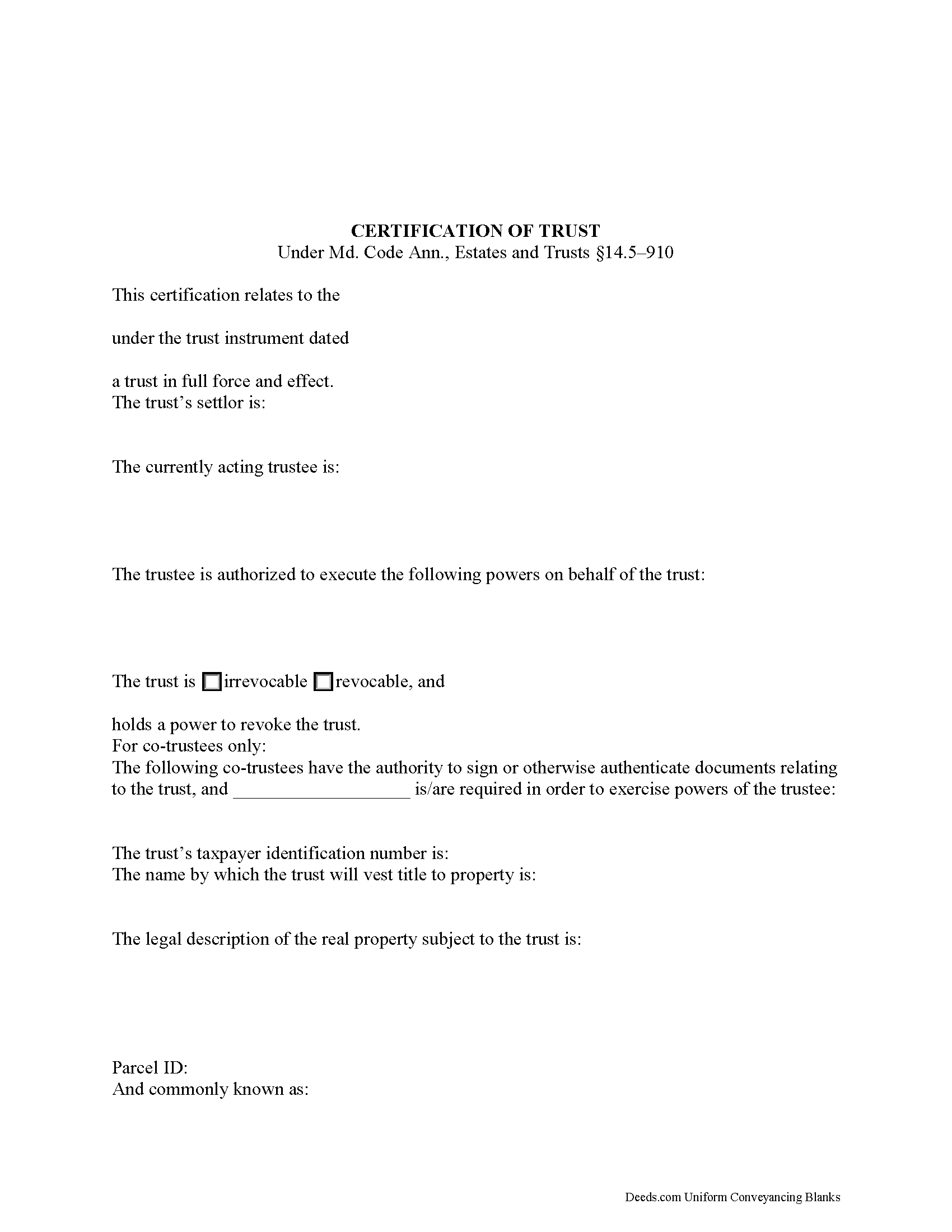Download Maryland Certificate of Trust Legal Forms

Maryland Certificate of Trust Overview

How to Execute a Maryland Certification of Trust
The certification of trust is codified under 14.5--910 of the Estates and Trusts Article of the Maryland Code. The document is an abbreviation of a trust instrument, verifying the trust's existence and the trustee's authority to enter into the impending transaction.
A certification of trust contains only information essential to the transaction at hand; for example, it need not provide the dispositive terms of the trust, so the identities of trust beneficiaries remain private. The rights of certain persons to obtain the trust instrument are reserved for the instances stated under Md. Code Ann., Estates and Trusts 14.5-910(h).
The information required in a Maryland certification of trust includes a statement that the trust exists, the date of the trust instrument under which it was formed, and the identity of the trust's settlor. A settlor is defined under the Maryland Trust Act as "a person...that creates or contributes property to a trust" and can include more than one person (Md. Code Ann., Estates and Trusts 14.5-103(v)).
The certificate includes the name and address of each acting trustee at the time of the certificate's execution, as well as a description of the powers the trustee has related to the pending transaction. For example, if a certificate of trust is presented by a trustee wishing to execute a trustee's deed, a power of sale should be referenced. Recipients of the certificate can request, in addition, the excerpts from the trust instrument which designate the trustee and establish the relevant powers (Md. Code Ann., Estates and Trusts 14.5-910(e)).
The document also identifies the trust as either revocable or irrevocable and, if the former, the identity of anyone having a power to revoke the trust. For living trusts, the settlor generally retains this power. In the case of co-trustees, the certificate tells which can authenticate documents and whether all or fewer are required in exercising trustee powers. Any trustee may sign a certification of trust in the presence of a notary public.
The taxpayer identification number (TIN) of the trust is required, unless this number is the Social Security number (SSN) of the settlor. Irrevocable trusts are assigned their own taxpayer ID, separate from a SSN.
Finally, the certificate contains the name by which the trust is to hold title to assets, including real property. Where the certificate is used in transactions involving real property, a legal description of the property subject to the trust should be included. The certificate must contain a statement "that the trust has not been revoked, modified, or amended in a manner that would cause the representations in the certification of trust to be incorrect" (Md. Code Ann., Estates and Trusts 14.5-910(c)).
Recipients of a certificate may rely on the correctness of its content, and are protected under Md. Code Ann., Estates and Trusts 14.5-910(f).
Contact an attorney with any questions regarding Maryland trusts and certifications of trust, as trust law can quickly become complicated and each situation is unique.
(Maryland COT Package includes form, guidelines, and completed example)